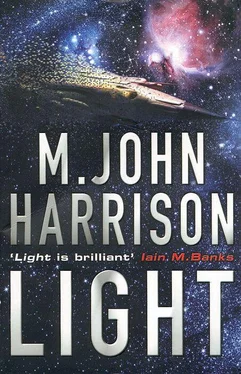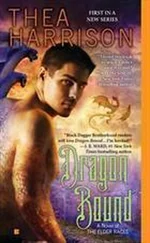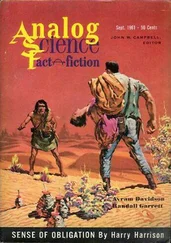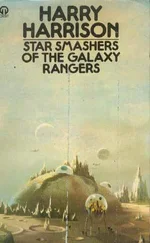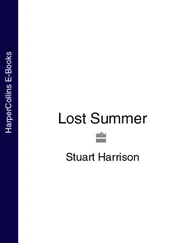Kearney smiled.
'I'm glad.'
'No, you're not!' she shouted. 'No, you're not!'
Tim came out of the building behind her. He was dressed, and he had his car keys in his hand. He crossed the pavement without looking at Anna or Kearney, and got into his car. He wound the driver's window down as if he thought about saying something to one of them, but in the end shook his head and drove off instead. Anna stared after him puzzledly then burst into tears. Kearney put his arm round her shoulders. She leaned in to him.
'Or did you come back to kill me,' she said quietly. 'The way you killed all those others?'
Kearney walked off towards the Underground station at Gunnersbury. His phone chirped at him suddenly, but he ignored it.
Heathrow Terminal 3, hushed after the long night, maintained a slow dry warmth. Kearney bought underwear and toilet articles, sat in one of the concessions outside the departure lounge reading the Guardian and taking small sips of a double espresso.
The women behind the concession counter were arguing about something in the news. 'I'd hate to live forever,' one of them said. She raised her voice. 'There's your change, love.' Kearney, who had been expecting to see his own name on page two of the paper, raised his head. She gave him a smile. 'Don't forget your change,' she said. He had found only the name of the woman he had killed in the Midlands; no one was looking for a Lancia Integrale. He folded the paper up and stared at a trickle of Asians making their way across the departure lounge for a flight to LAX. His phone chirped again. He took it out: voicemail.
'Hi,' said Brian Tate's voice. 'I've been trying to get you at horns.' He sounded irritable. 'I had an idea a couple of hours ago. Give me a ring if you get this.' There was a pause, and Kearney thought the message was over. Then Tate added, 'I'm really a bit concerned. Gordon was here again after you left. So call.' Kearney switched the phone off and stared at it. Behind Tate's voice he had heard the white cat mewing for attention.
'"Justine"!' he thought. It made him smile.
He sorted through the courier bag until he found the Shrander's dice. He held them in his hand. They always felt warm. The symbols on them appeared in no language or system of numbers he knew, historical or modern. On a pair of ordinary dice, each symbol would be duplicated; here, none was. Kearney watched them rattle across the tabletop and come to rest in the spilled coffee by his empty cup. He studied them for a moment, then scooped them up, stuffed newspaper and phone hastily into the courier bag, and left.
'Your change, love!'
The women looked after him, then at each other. One of them shrugged. By then, Kearney was in the lavatories, shivering and throwing up. When he came out, he found Anna waiting for him. Heathrow was awake now. People were hurrying to make flights, make phone calls, make headway. Anna stood fragile and listless in the middle of the concourse, staring every so often at their faces as they brushed past her. Every time she thought she saw him her face lit up. Kearney remembered her at Cambridge. Shortly after they met, a friend of hers had told him: 'We nearly lost her once. You will take care of her, won't you?' He had remained puzzled by this warning-with its image of Anna as a package that might easily slip the mind-only until he found her in the bathroom a month later, crying and staring ahead, with her wrists held out in front of her. Now she looked at him and said:
'I knew this is where you'd be.'
Kearney stared at her in disbelief. He began to laugh.
Anna laughed too. 'I knew you'd come here,' she said. 'I brought some of your things.'
'Anna -'
'You can't keep running away from it forever, you know.'
This made him laugh harder for a moment, then stop.
Kearney's adolescence had passed like a dream. When he wasn't in the fields, he was at the imaginary house he called Gorselands, with its stands of pine, sudden expanses of sandy heath, steep-sided valleys full of flowers and rocks. It was always full summer. He watched his cousins, leggy and elegant, walk naked down the beach at dawn; he heard them whisper in the attic. He was continually sore from masturbating. At Gorselands there was always more; there was always more after that. Inturned breathing, a sudden salty smell in an empty room. A murmur of surprise.
'All this dreaming gets you nowhere,' his mother said.
Everyone said that. But by now he had found numbers. He had seen how the same sequences underlay the structure of a galaxy and a spiral shell. Randomness and determination, chaos and emergent order: the new tools of physics and biology. Years before computer modelling made bad art out of the monster in the Mandelbrot Set, Kearney had seen it, churning and streaming and turbulent at the heart of things. Numbers made him concentrate more: they encouraged him to pay attention. Where he had winced away from school life, with its mixture of boredom and savagery, he now welcomed it. Without all that, the numbers made him see, he would not go to Cambridge, where he could begin to work with the real structures of the world.
He had found numbers. In his first year at Trinity someone showed him the Tarot.
Her name was Inge. He took her to Brown's and, at her request, to a film called Black Cat White Cat by Emir Kusturica. She had long hands, an irritating laugh. She was from another college. 'Look!' she ordered. He leaned forward. Cards spilled across the old chenille tablecloth, fluorescing in the late afternoon light, each one a window on the great, shabby life of symbols. Kearney was astonished.
'I've never seen this before,' he said.
'Pay attention,' she ordered. The Major Arcana opened like a flower, combining into meaning as she spoke.
'But it's ridiculous,' he said.
She turned her dark eyes on him and never blinked.
Mathematics and prophecy: Kearney had known instantly that the two gestures were linked, but he couldn't say how. Then, waiting for a train to King's Cross the following morning, he identified a relationship between the flutter of cards falling in a quiet room and the flutter of changing destinations on the mechanical indicator boards at the railway station. This similarity rested, he was willing to admit, on a metaphor (for while a cast of the Tarot was-or seemed-random, the sequence of destinations was-or seemed-determined): but on the basis of it he decided to set out immediately on a series of journeys suggested by the fall of the cards. A few simple rules would determine the direction of each journey, but-in honour of the metaphor, perhaps-they would always be made by train.
He tried to explain this to Inge.
'Events we describe as random often aren't,' he said, watching her hands shuffle and deal, shuffle and deal. 'They're only unpredictable.' He was anxious she should understand the distinction.
'It's just a bit of fun,' she said.
She had taken him to bed eventually, only to become puzzled when he wouldn't enter her. That, as she had said, was the end of it as far as she was concerned. For Kearney it had turned out to be the beginning of everything else. He had bought his own Tarot-a Crowley deck, its imagery pumped up with all of that mad old visionary's available testosterone-and every journey he undertook after that, everything he did, everything he learned, had drawn him closer to the Shrander.
'What are you thinking?' Anna asked him after they landed in New York.
'I was thinking that sunlight will transform anything.'
Actually he had been thinking how fear transformed things. A glass of mineral water, the hairs on the back of a hand, faces on a downtown street. Fear had caused all these things to become so real to him that, temporarily, there was no way of describing them. Even the imperfections of the water glass, its smears and tiny scratches, had become in some way significant of themselves rather than of usage.
Читать дальше
